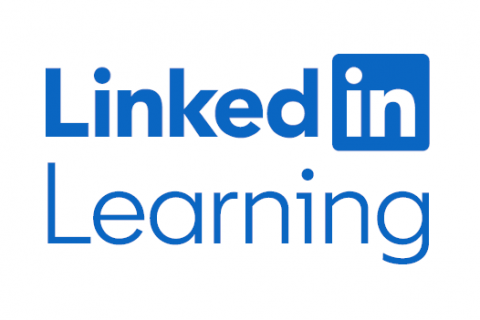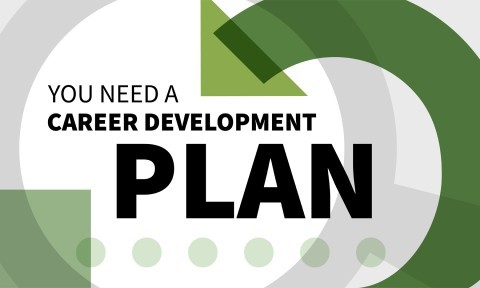These steps will get you started
- Review your four year plan with our Career Checklist below.
- Create targeted resumes, cover letters, and LinkedIn profiles
- Practice interviewing to perfect your responses and build confidence. Hone your skills with Big Interview. Big Interview is free for you to use as frequently as you’d like. Set up an account and get started today! To practice interviewing, you can also sign up for an in-person mock interview with our office.
- Network, whether it’s through a pre-planned meeting or an impromptu conversation at a conference, career fair, information session, or anywhere else. This can help you find your first job and also be crucial as you advance in your career. Networking works!
- Come to our events! Check our calendar for upcoming professional development events geared towards improving your resume, helping you connect with employers, and more.
FOUR YEAR CAREER CHECKLIST
SBS graduates go on to rewarding professions and advanced degrees, but career success and satisfaction require planning. Students often say: “Of course I want a job after I finish college, but what am I supposed to be doing NOW?”
If you enter SBS in your first semester, transfer into UMass, or join SBS in the midst of your UMass career, you can use the lists below to help guide and structure your career planning process. Many graduating seniors say they wish they’d started these steps earlier than they did, so don’t delay.
-
First Year
College is preparation for life. Dive in with enthusiasm and curiosity, ask questions, and keep an eye out for role models.
What do you like? Assess your interests and skills through FOCUS2 or one of our other self assessment tools.
Explore career fields. Get some ideas about what you can do with your major here.
Connect with the SBS Office of Career & Professional Development in the SBS Pathways Center! Drop in to meet with a peer for initial resume review – you want to have a resume ready to go if an unexpected opportunity arises. Schedule an appointment with your career advisors to discuss options.
Access SBS & UMass Databases. Complete your profile in Handshake, which has a listing of internships and jobs, events, appointments scheduling, resources, and more.
Focus on academics. Always attend classes and seek out support to succeed in your courses – strong grades and good relationships with instructors will make you stand out when seeking an internship or job.
Participate in campus activities. This helps you not only enjoy your time at UMass, but allows you to build important skills like public speaking, collaboration, and follow-through.
Summer
Gain experience! This is the perfect time to gain experience via work, volunteering or an internship. Each position you hold helps build your track-record for the next level of responsibility or professional development.
-
Sophomore Year
Complete the items on the first year list above.
Check your requirements. Confirm with your major advisor that you’re on track with your departmental requirements.
Think practically. Consider classes with a required practicum or community-based component – they’ll broaden your exposure to the larger world.
Put it down on paper. Update your resume, and have it reviewed by a peer advisor in The SBS Pathways Center.
Get updated. Update your profile in Handshake and read the emails coming from your career team and the SBS Pathways Center.
Network. Attend events with SBS alumni or faculty to learn about career options and the world of work.
Learn and apply. Attend a session on summer options and apply for summer internships.
Plan for references. Get to know your instructors, and attend office hours. When applying for on-campus positions, approach instructors to built a network of references. This becomes only more important over time.
Get global. Explore the process of studying abroad or domestic exchange. If you want to do so next year, it’s time to get thinking about it, and you can even add an internship while away. It’s a great way to expand your experience!
Get advice. If you haven’t already, meet our SBS Pathways Center career advisors. They specifically work with majors in SBS.
Summer
Gain more experience! Gain additional experience via work or an internship. Apply the communication, critical thinking, and problem-solving skills that you’re developing in your course work and extra-curricular activities.
-
Junior Year
Complete the items on the lists above.
Get updated. By now, you should have a number of work and co-curricular activities under your belt, so update your resume.
Turn co-curriculars into experience. Make the most of your participation in extra-curricular activities, volunteer work, or campus jobs. This is where you can build important skills that will last a lifetime.
Plan for your summer internship, and consider an academic year internship on campus or locally. Your career advisors or your major advisor can suggest options for credit.
Who are your contacts? Create a list of people in your professional network: faculty, students, former employers, your friends’ parents and your parents’ friends, etc.
Network. Build a profile on LinkedIn, a key networking tool.
Apply yourself. Start applying for summer internships in the fall; deadlines can come early for the best opportunities!
Go to career related events. Attend at least one career fair and two employer information sessions to see how employers and students interact at these important events. Introduce yourself to at least two representatives and start a conversation about what you and they have to offer.
Thinking about graduate school? If you’re considering graduate school, discuss this with your major advisor. Even if you don’t want to enter immediately after college, you should preview your options.
Summer
INTERNSHIPS! This is your peak internship summer. If you have not yet had an internship, now is the time! Even if you have, this is your most important summer to do this, and in certain industries (financial sector, tech sector), internships during the summer before senior year can result in full-time job offers for after graduation.
Talk. Try to hold at least two conversations about your career plans with professionals, ideally in your field of interest. These conversations can be low-stakes and exploratory. By practicing this kind of dialog, you can refine your thinking and rehearse the important interview skill of talking about yourself and your ambitions.
Apply your skills. Writing, analytical thinking, and teamwork are some of the most marketable skills. Apply them as much as you can at your job or internship.
-
Senior Year
Complete the items on the lists above.
Get polished. Update your resume on your own and with a career advisor so it’s ready to send out as graduation approaches.
Practice. Schedule a mock interview with one of your career advisors in the SBS Pathways Center.
Go to events. Attend workshops on job search techniques and interviewing. Buy an interview outfit.
Check your email. Read the emails that come to you from the SBS Pathways Center, and your major department(s) – these can have fantastic leads on employers.
Stay on track. Meet with your major advisor to confirm you’re on track to graduate.
Get your references ready. Choose 3-4 professional references and meet with them to discuss your job search. If you’re planning on grad school, you’ll need faculty recommenders, and you’ll need to request those recommendations at the beginning of the fall semester.
Search. Use the Handshake database at least one each week to check new listings. Start applying for jobs!
Make time. Try carving out 1-3 hours each week to dedicate to networking, researching careers and employers, and getting those applications out. Writing this into your planner can keep you on track and moving forward, and keeps it from getting overwhelming.
Meet with career experts. Feeling nervous at all about your job search? Be sure to check in with an SBS career advisor to discuss your strategy!
















